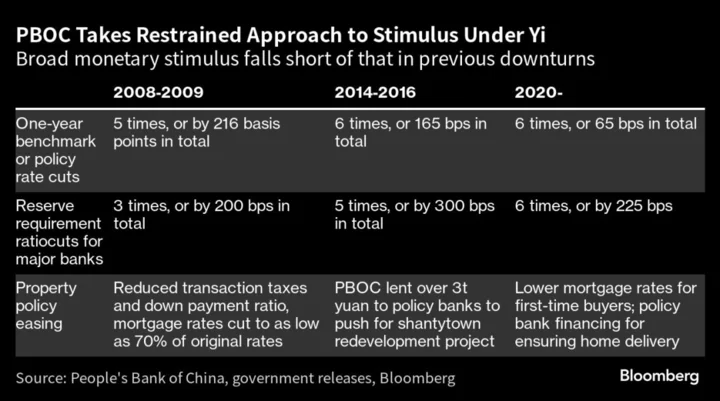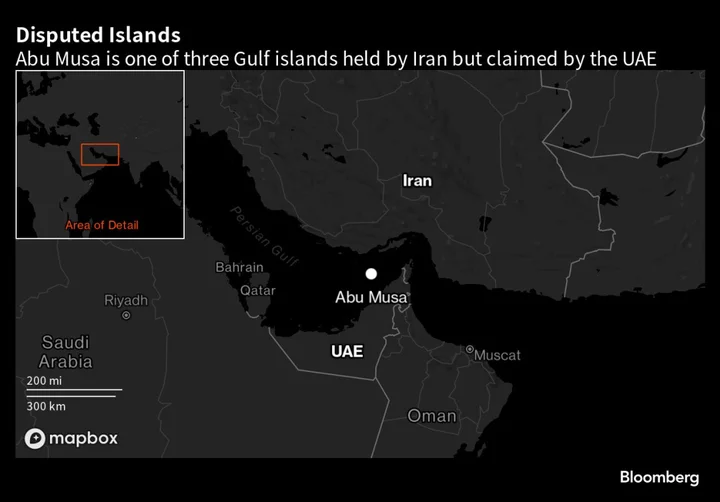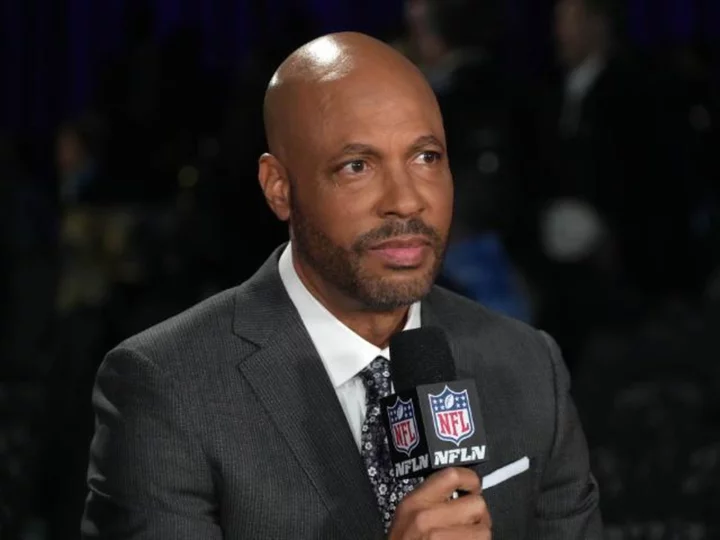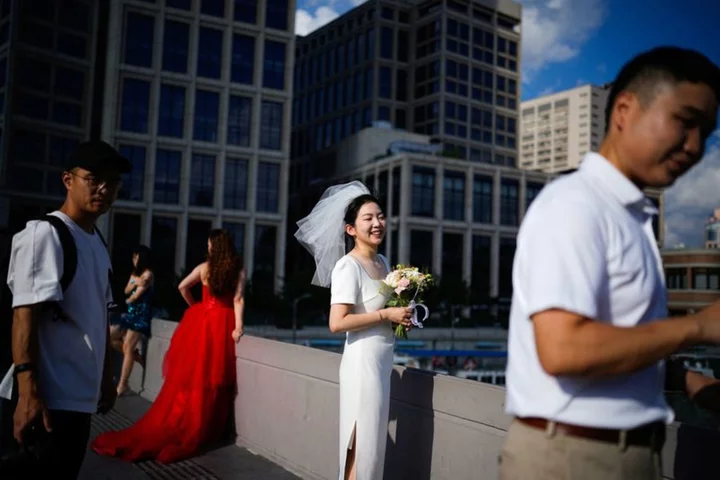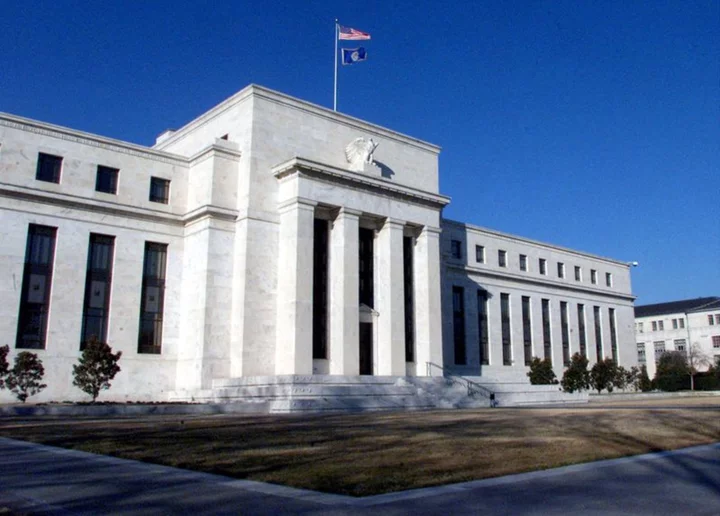Yi Gang ends a five-year tenure at the helm of China’s central bank that’s been marked by a restrained policy approach focused on moderate stimulus and reducing financial risks in the economy.
He was removed from his position by the National People’s Congress Standing Committee on Tuesday, according to the official Xinhua News Agency.
After taking office in early 2018, Yi led the PBOC through tumultuous times including the US-China trade war, the Covid pandemic and a property downturn. He leaves his successor Pan Gongsheng with the tough job of restoring confidence in the economy as the recovery weakens, the housing market continues to slump, businesses remain wary of geopolitical tensions and debt levels escalate.
Yi, 65, has reached the official retirement age after working at the PBOC for nearly three decades. His reappointment as the PBOC governor in March was seen by some analysts as a temporary arrangement to ensure policy stability amid a major shakeup of financial regulation.
A US-trained economist and Beijing native, Yi was well-regarded by international investors as a liberal technocrat. He modernized the way monetary policy is conducted in the world’s second-largest economy, and helped rebuild the yuan’s international standing after a botched devaluation in 2015 that hurt market confidence.
“Yi’s biggest legacy will be the shift toward ‘structural’ monetary policy,” said Adam Wolfe, an economist at Absolute Strategy Research Ltd. “He oversaw a Cambrian explosion of new tools for directing credit to preferred sectors.”
These tools combined “the guiding hand of the government with the invisible hand of the market, in line with the new growth model that’s emerged under Xi Jinping’s leadership.”
Read More: China Holds Off on Major Stimulus as It Signals Property Easing
The PBOC’s structural tools — which include relending programs that provide low-cost funding to targeted areas, such as small business and green sectors — have mushroomed to 6.9 trillion yuan under Yi’s watch. They have eclipsed the amount of conventional one-year central bank loans to make up a sixth of the PBOC’s assets, and supported credit expansion when borrowing appetite dwindled.
The PBOC’s mandate over financial stability was strengthened under Yi’s reign, with the central bank helping to steer China’s effort to control soaring debt in order to minimize financial risks. That included curbing the shadow banking industry — its size declined from a peak of 28 trillion yuan in 2018 to 19 trillion yuan currently — as well cracking down on reckless conglomerates, banks and sectors it deemed risky such as cryptocurrencies and property.
Yi will likely be remembered for his resolution to stick to “normal” monetary policy even when the economy was hit by the pandemic crisis. Unlike other major global central banks, Yi adopted measured interest rate cuts and rejected unconventional steps like asset purchases. That’s helped to keep price gains in check as well as rein in bubbles in financial markets.
However, his restrained approach hasn’t been without criticism. Some economists and investors clamored for more decisive monetary easing during the economy’s downturn, with the PBOC cutting interest rates much more modestly since 2020 compared with previous crises.
Some scholars and researchers have also recently expressed more concern about the PBOC favoring structural tools — such as relending programs and targeted reserve requirement ratio cut — over broader instruments, like interest rate cuts. The former are not as efficient outside of emergency times and have had little lasting impact, some economists say.
Others questioned whether such tools may distort market competition and encourage arbitrage that leads to wasteful circulation of money in the financial system.
Yi was also at the forefront of China’s push to modernize its exchange rate system, although liberalization of interest rates and the currency still has some way to go. Despite a more market-based system, the PBOC continues to exert significant influence over how commercial banks determine their lending rates. The yuan, while a lot more flexible that it used to be, still remains a managed currency rather than a freely traded one.
“China’s interest rates and its exchange rate are more market-determined today than they were when Yi took over at the PBOC, although neither have been fully liberalized,” said Wolfe.
Sent Down
Like President Xi, Yi was part of a generation of urban youth sent down to work in the countryside during the the country’s 1966-76 Cultural Revolution. He passed the national college entrance exam when it was resumed in 1977 and got into the prestigious Peking University.
In an interview with Chinese media in 2012, Yi recalled arriving in America in 1980 with only $2 in his pocket and earning his living expenses by washing dishes every week because Chinese individuals were allowed to exchange little foreign currency at that time.
He later earned a salary of several thousand dollars as an assistant professor in the US. That was a stark contrast to his mother’s salary, who as a primary school principal in China received only 99 yuan a month. That yawning gap between the two countries drove him to research economics and monetary policy, he said.
Yi is likely to continue contributing to economic discussions and research like his predecessor Zhou Xiaochuan. He became the president of the PBOC-linked association China Society for Finance and Banking last year, replacing Zhou.
In Yi’s last public engagement at a lecture arranged by the Monetary Authority of Singapore in July, he was introduced with that title.
When asked about the PBOC’s current leadership at the event, Reuters reported, Yi said: “I am Yi Gang, and also, my title is right here on the screen, and I will ... take care of my duty any time in my full capacity.”

